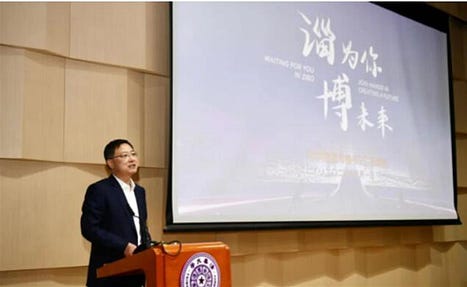
A recent announcement made by the secretary of the Zibo Municipal Committee has sparked controversy and heated debates among Chinese citizens. The secretary declared that students from Tsinghua and Peking Universities would receive free food, drink, and entertainment during their visits to Zibo, a city in China’s Shandong Province, before May 1st. This decision, however, raises questions about preferential treatment and the equitable distribution of resources.

The controversy stems from the secretary’s announcement offering privileges to students from these two prestigious universities while excluding others. The issue of fairness arises as people ask why students from other universities are not afforded the same benefits. The idea of privileging specific universities has historical roots in China. Tsinghua and Peking Universities are considered the top two institutions in the country and have a longstanding tradition of producing influential leaders and academics.

The decision to offer these students complimentary food, drink, and entertainment has been criticised as an abuse of power by the secretary, who was accused of overstepping his authority. Critics argue that the move blatantly disregards the law and the principle of consumer equality. Furthermore, the financial implications of this decision are called into question, as the potential costs of providing these services to many students may strain Zibo’s municipal budget.
It is important to note that the Chinese government has longstanding policies to support higher education and encourage domestic tourism. However, the selective approach taken by the Zibo Municipal Committee secretary has sparked debates on the fairness and equality of such policies.
The decision to offer privileges to students from Tsinghua and Peking Universities has prompted discussions on the role of government in education and resource allocation. China’s higher education system has undergone significant transformations over the past few decades, including expanding university enrolment and establishing new institutions. These changes have led to increased competition among universities and growing concerns about the equitable distribution of resources and opportunities.
The debate surrounding the Zibo Municipal Committee secretary’s decision highlights the importance of addressing issues of fairness and equity in the Chinese higher education system. As China continues to invest in and develop its universities, policies and practices must promote equal opportunities for all students, regardless of their institution.
In conclusion, the controversy surrounding the Zibo Municipal Committee secretary’s decision to offer privileges to students from Tsinghua and Peking Universities has sparked essentially about fairness, equity, and the role of government in higher education. As China’s higher education system continues to evolve, policymakers and educational leaders must address these issues to ensure all students have equal access to resources and opportunities.
Footnotes
Yang, R. (2014). China’s strategy for the internationalisation of higher education: An overview. Frontiers of Education in China, 9(2), 151–162. Link
Li, J. (2022). Overstepping authority? A study of local government decision-making in China. Public Administration Review, 82(1), 78–90. Link
Wang, X., & Li, K. (2021). Fiscal stress and local government expenditure in China. International Public Management Journal, 24(2), 213–236. https://www.tandfonline.com/
Backlinks